As a magazine that covers not only Russian, but also the entire world of tattoo, we often ask our guests tattoo artists about the differences in work, the mentality of clients, public attitudes towards tattoos, cultural characteristics in different countries. And today, our guest is a tattoo artist you already know (we talked about his creative path in one of our previous articles), traveler and popularizer of tattoo - Egor Kubrak!
In the last publication, we talked about Yegor's plan to move to the mecca of modern tattooing, in the United States of America, one mention of which echoes with a pleasant warmth in the heart of every true fan of tattoos and any other manifestation of street culture.
How does a tattoo artist from the Far East of Russia live in the territory of a mixture of thousands of cultures - we will find out today in our interview!
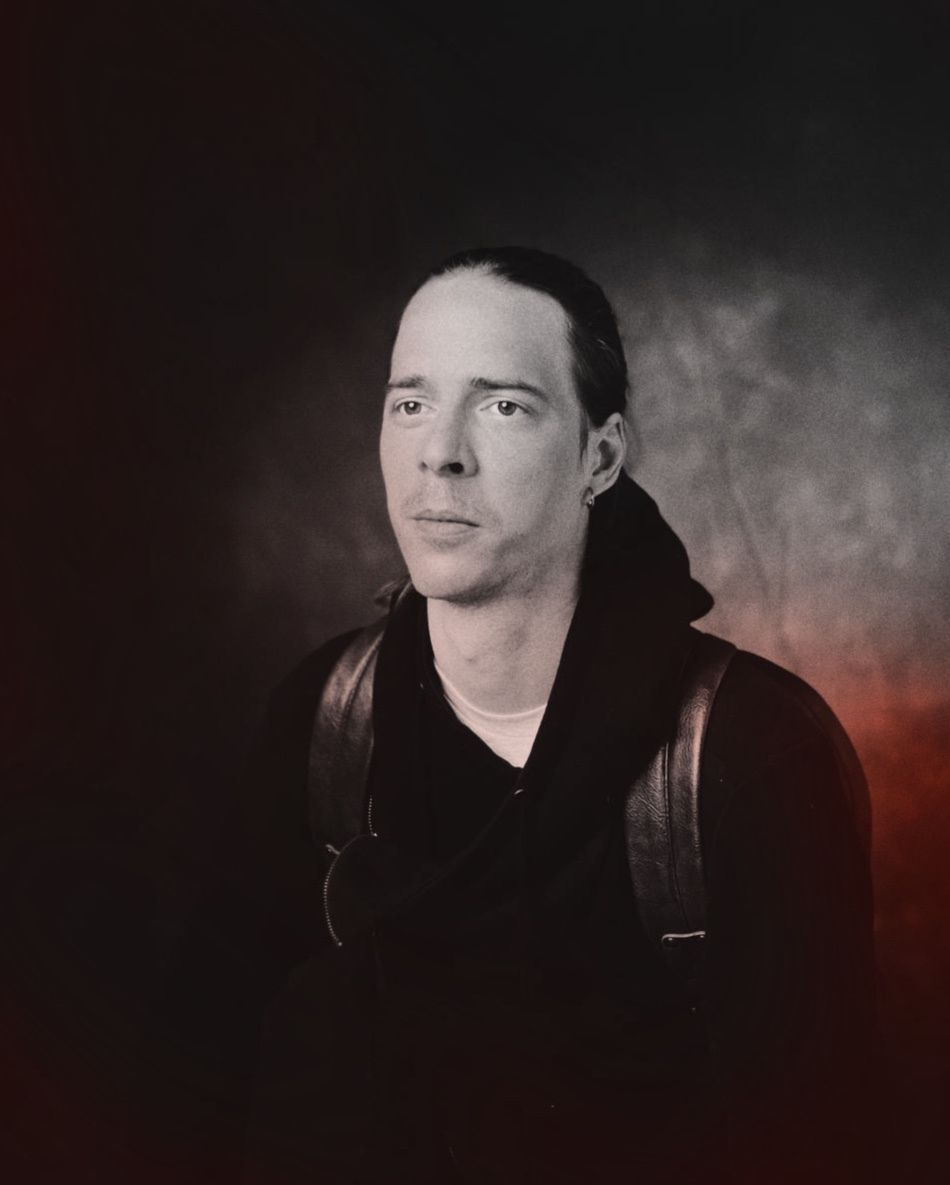
- Hi, Egor! We have already introduced readers to your persona, so you can briefly, for those who missed it: tell us a little about yourself and how and when did you decide to become a tattoo artist?
- Hello! When I was at university, a guy with a tattoo machine appeared in our party. He briefly explained how to use it so as not to kill anyone around, and after that I started making my first "tribals". Before that, I already worked as a designer, painted a lot, and decided that for me this is an easy task. But the feeling of creativity on the skin is completely different, alive or something, and I realized that this is exactly what I want to do. At the same time, I almost immediately wanted to open my own tattoo studio, and even if at first it was just a small nook on the outskirts of the city, I ended up with a good project, which I have been doing for about 3 years. Then we moved to a large premises in the city center, I participated in the organization of several exhibitions in the Far East for tattoo artists and even organized a tattoo convention under the auspices of Tattoo Week.
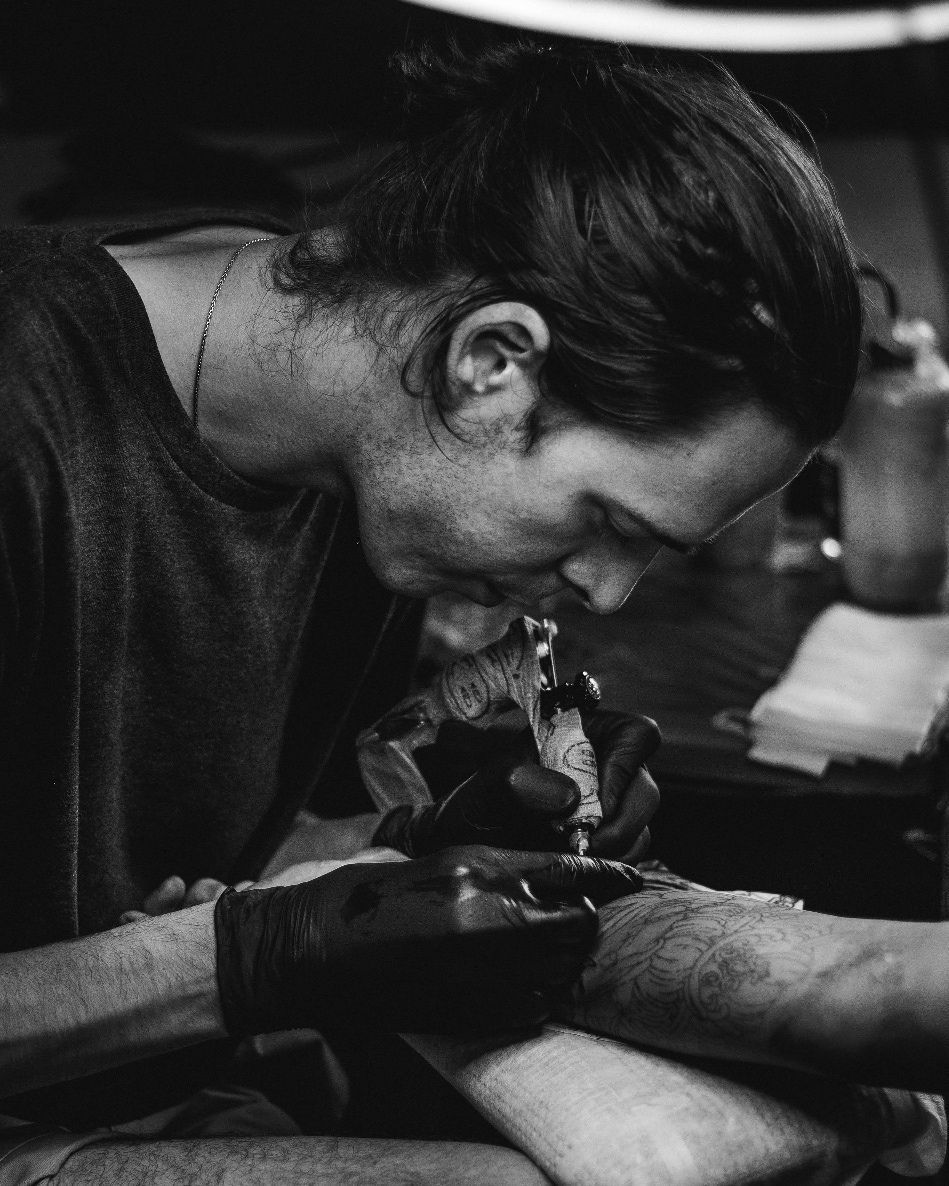
- What does this word "tattoo" mean to you?
- For me, the concept of a tattoo is constantly changing. When I lived in Russia, it seemed to me that this was a way of self-expression, a challenge to society, an attempt to declare yourself. After I began to analyze the approach of the best masters in this field, I began to believe that tattooing is a form of modern art. And when I began to study historical sources for writing a book about tattoos, I realized that this is part of a centuries-old world culture, unique in each region in its own way, but in general, designed to help people overcome their own fears, become more courageous and stronger.
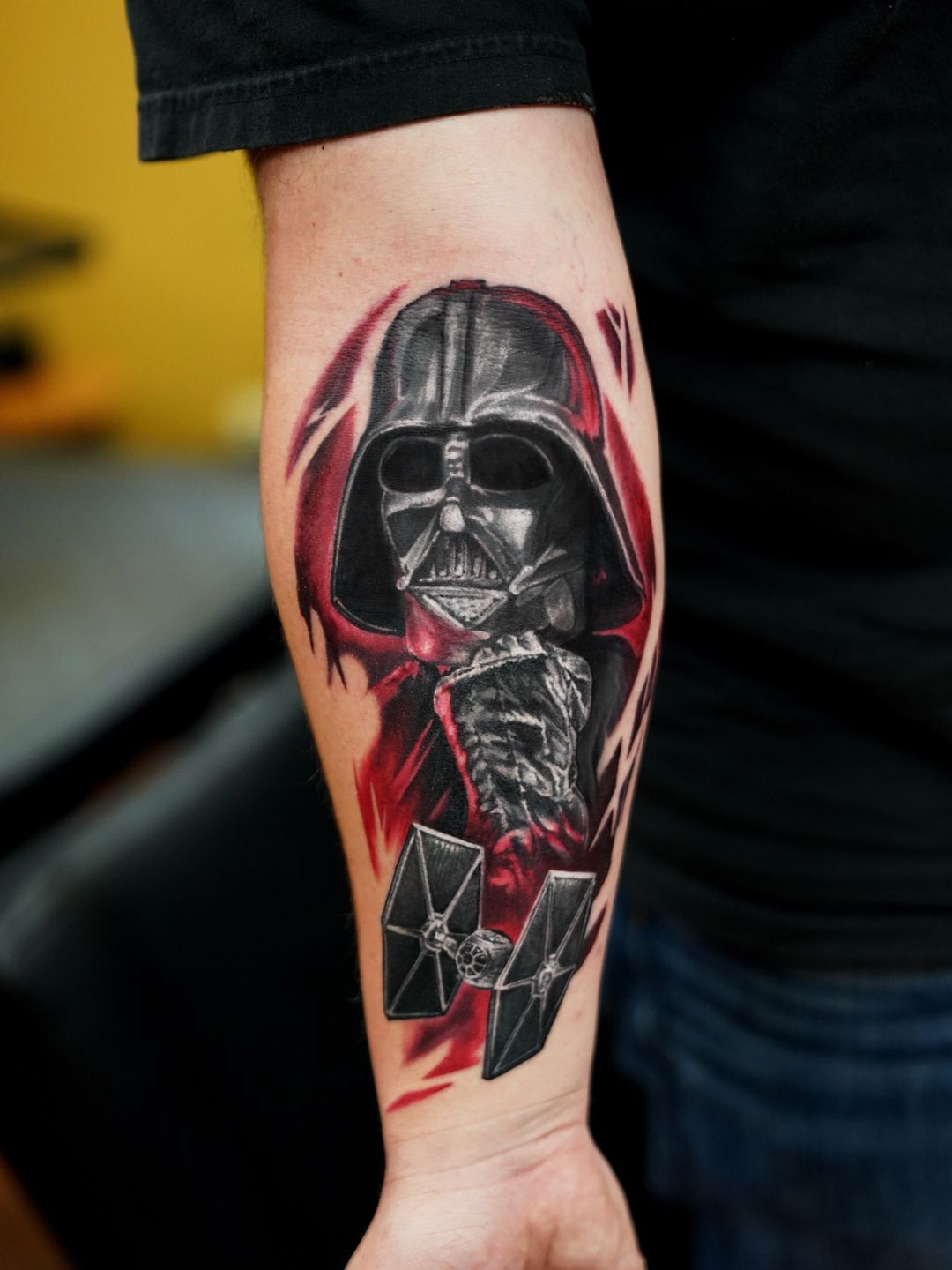
- Tell us about the style in which you work now?
- It's simple, I almost always worked in the style of realism, and in the near future I am not going to change anything in this regard.
- Now everyone is striving for their own recognizable style. What are you striving for in this direction? What features of your work can you highlight yourself?
- Basically, I was looking for myself precisely within the framework of realism, but experimenting with color. For example, for three years I only did black and white tattoos, and then began to actively work with color. Now my style is Black and White, dense black and white shades with one or two color accents added. And I have always been interested in Eastern symbolism, I would like to integrate it more into my works.
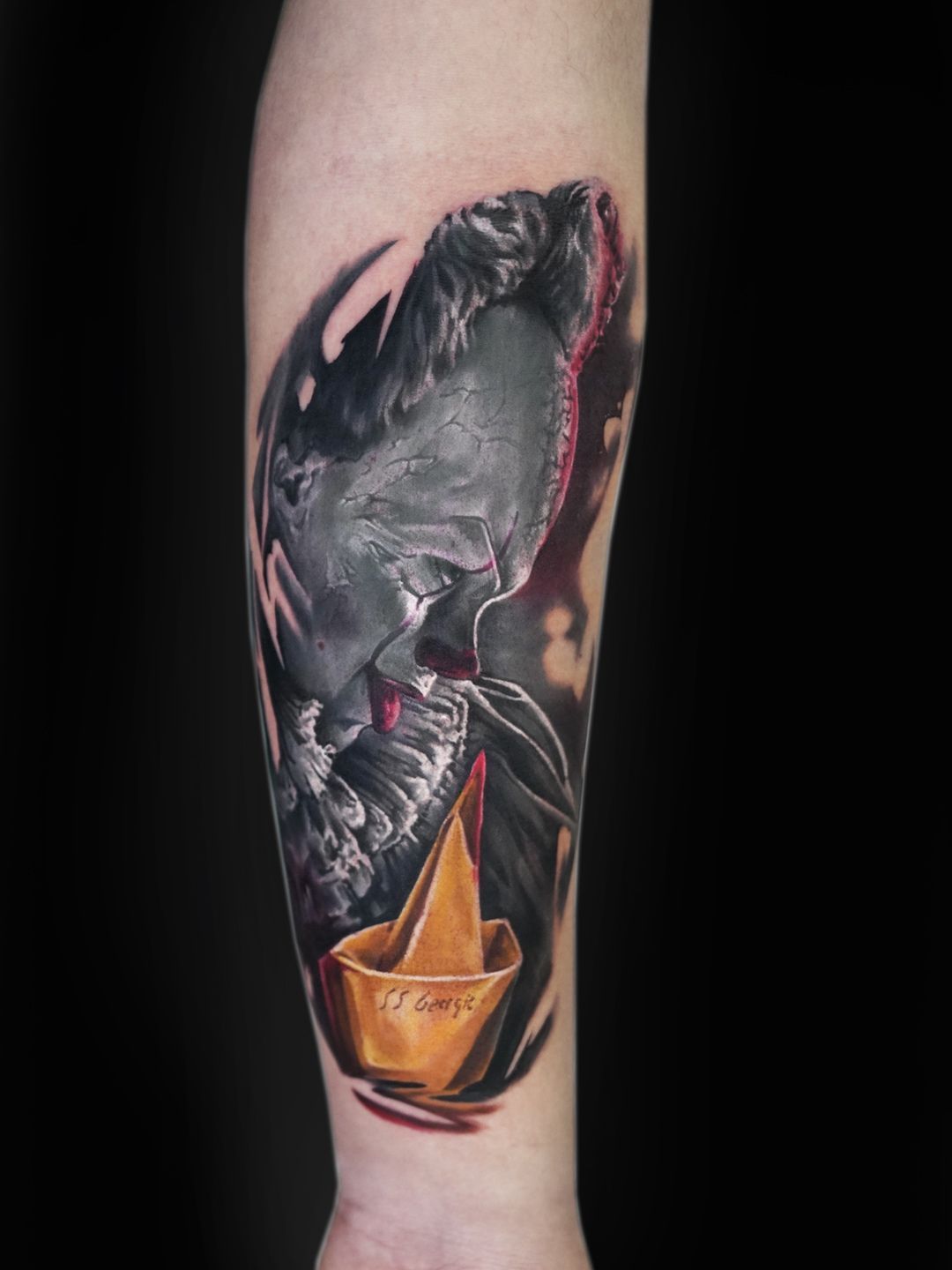
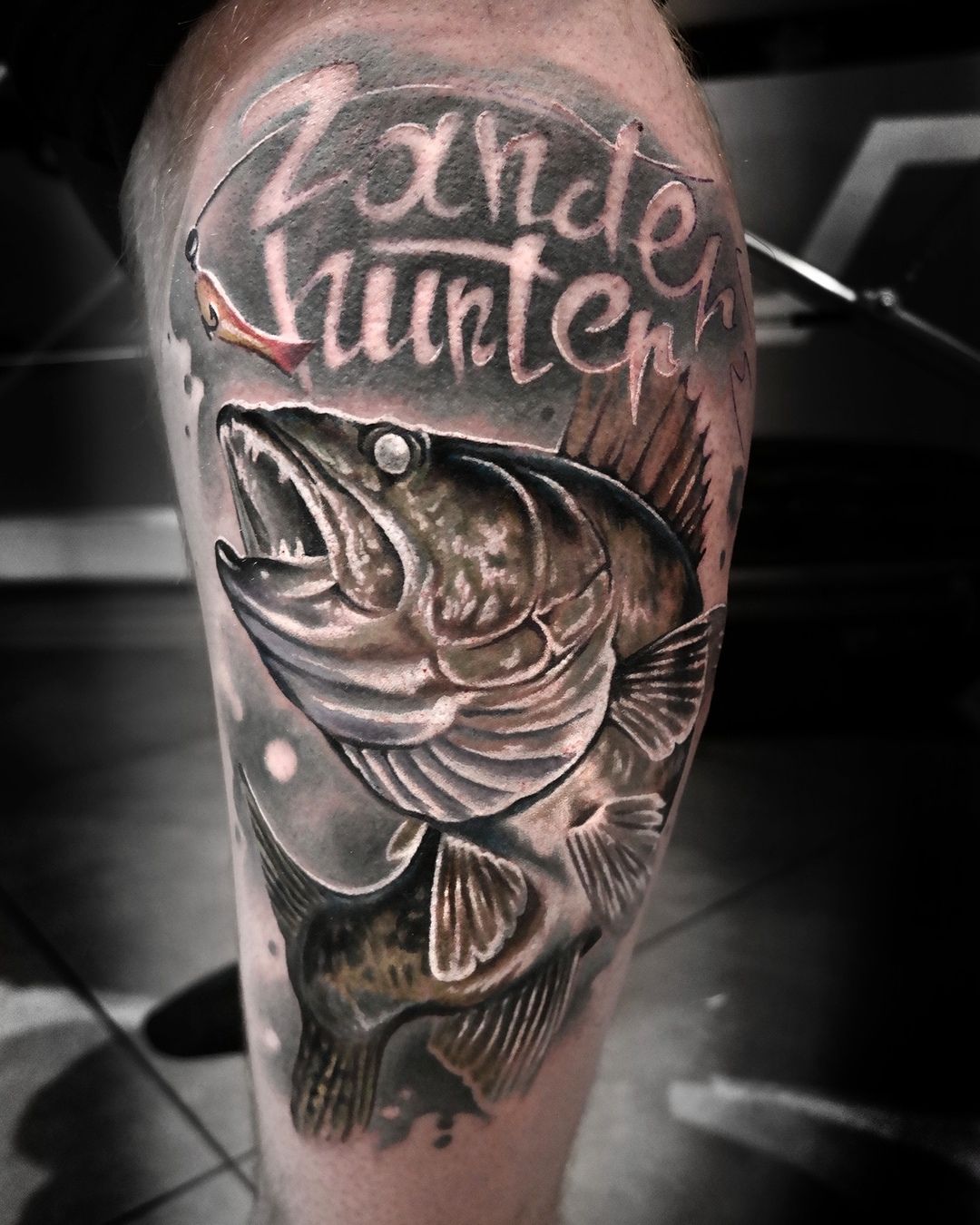
- Where do you get your inspiration?
- I don't want to sound trite, but in New York. I adore this city for its incredible multiculturalism and richness. As if all the sliders of impressions were turned to the maximum. You can walk through Chinatown with red lanterns and Mandarin speech around, turn the corner, and there is a huge crowd of people dancing salsa. Go to an exhibition of African art, and then ride a couple of metro stations to the Jewish quarter, for the best shakshuka in the city, and end the evening by relaxing in the nightclub of the building of the former Anglican church. Here I got an absolutely clear feeling that everything is possible..
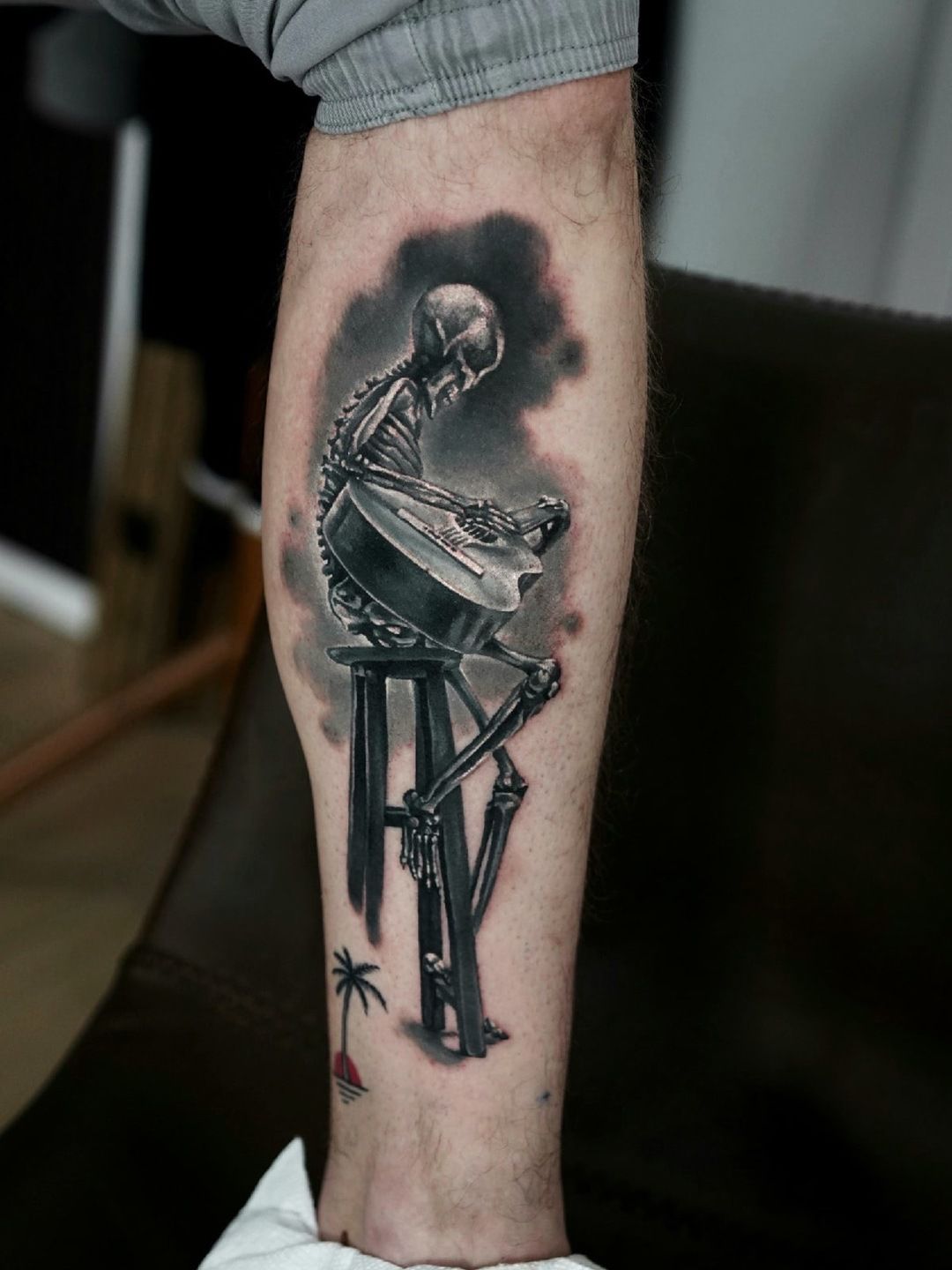
- In the Russian space, many people know you as a popularizer of tattoos. You were the organizer of the tattoo convention in Vladivostok, you know a lot about how the tattoo culture developed in our country, what do you think, at what stage is it now?
- I and my many American friends sincerely agree that Russia has the strongest and best tattoo artists. It is a pity that in the CIS, they often remain underestimated due to high competition..
- What future of Russian tattoo do you see?
- I believe that the next 10 years for sure, Russia will retain its unofficial title of the industry leader. Our artists are highly regarded all over the world and I see this respect from foreign tattoo artists. I recently won the Best of Show at a tattoo convention in Atlanta, and while collecting my things, I noticed tattooists near my stand pensively looking at my work and the banner. One of them asked (literally translated): “Who is this guy? Where is he from? Is he Russian?", And another answered him: "Of course, he is Russian!" And I feel such pride for the whole nation and our artists!
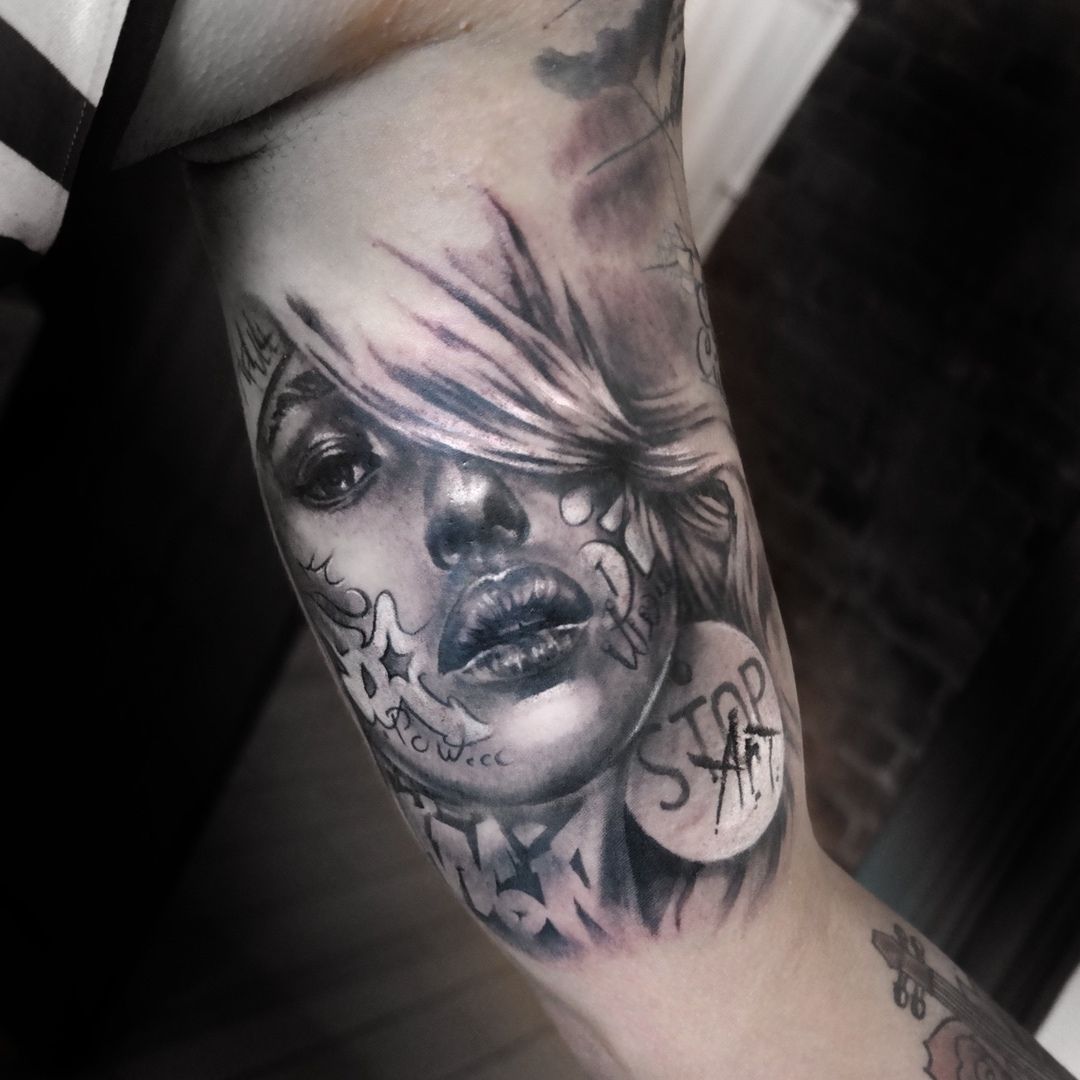
- You've traveled a lot. Tell us, what features of the tattoo culture of different countries could you highlight?
-I can only talk about what I saw personally, and it seemed to me that there is a very strong technical part in Asia. But the emphasis, whether it is the capital of China or a small city in Nepal, is on traditional motives, symbolism and spiritual values. And, of course, perfect skin (laughs).
In America, manual labor and uniqueness are highly valued. People are willing to pay not for perfect color transitions, but an individual approach and idea.
In Europe, it is difficult for me to single out any peculiarities due to the fact that in each country everything is different, but of course Europe is the abode of different interesting, new and bold visions, different mixes of stylistics.
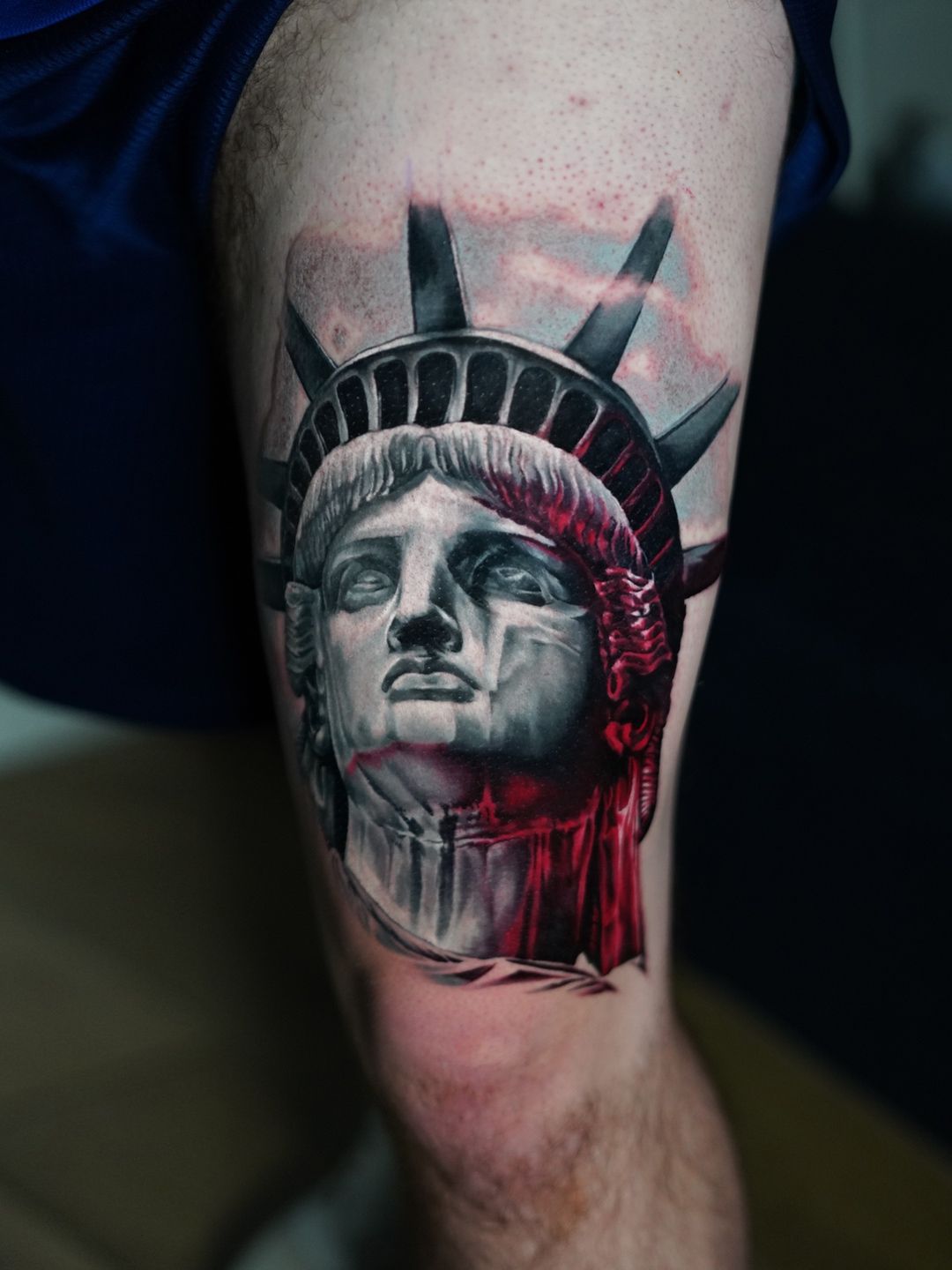
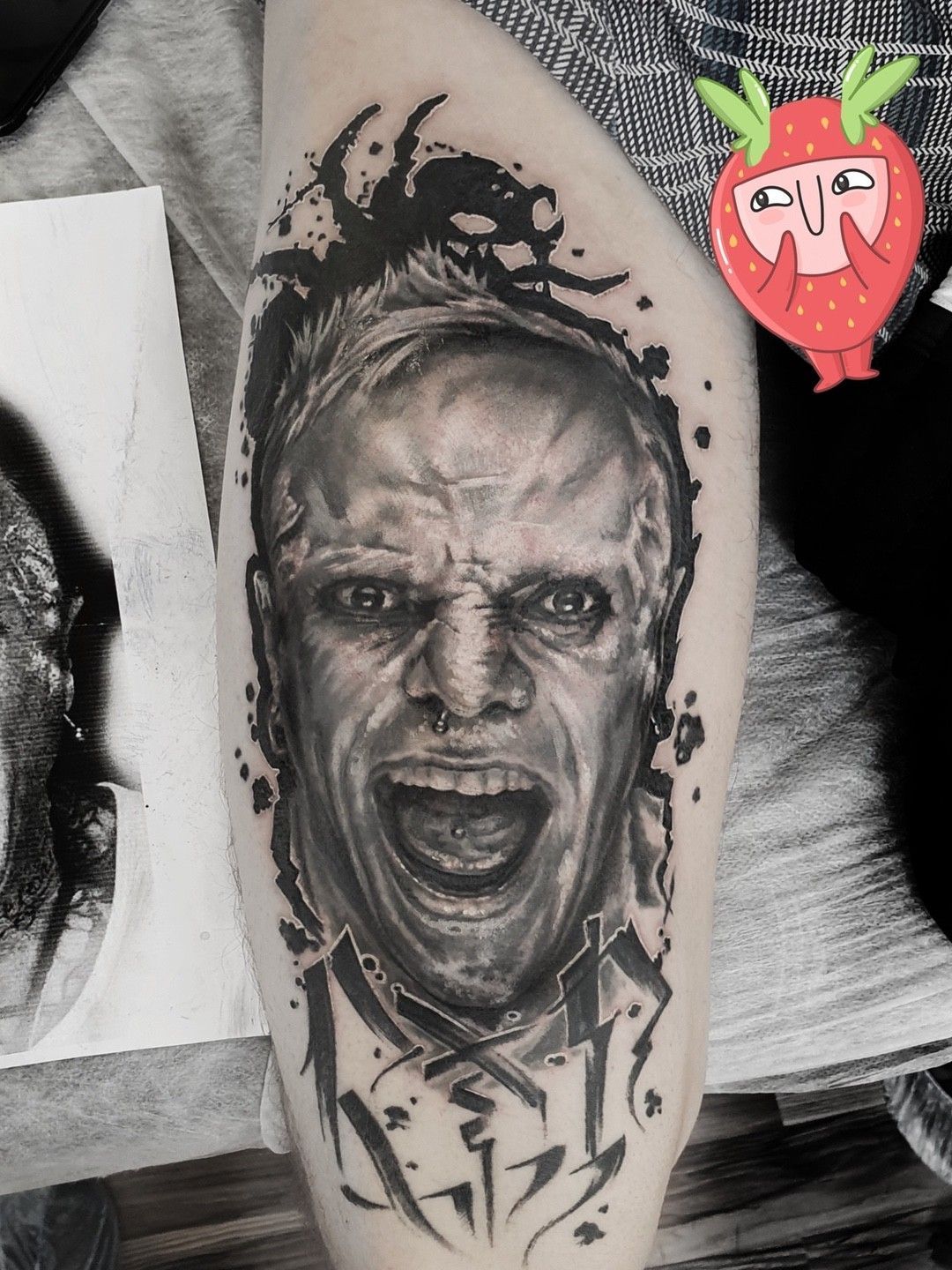
- So where do you think is best for a modern tattoo artist?
- Where he is comfortable. Many seek to go abroad without realizing all the difficulties of this step. I believe that it is imperative to travel, make acquaintances, not be afraid to promote yourself, and then draw conclusions..
- Do you work in the States now? For many people, and especially for tattoo artists, moving to the States is a cherished dream. How did you even decide to move overseas?
- Yes, I work in the USA and I really like everything. Traveling to the USA was rather a dream of my wife, we both liked the country and we decided to live there for ourselves for a month or two, travel and learn the language. Later, studios began to write to me with offers of cooperation, and I thought: why not? We faced many difficulties, I cannot call our path easy, but in the United States, perseverance is the key to success.
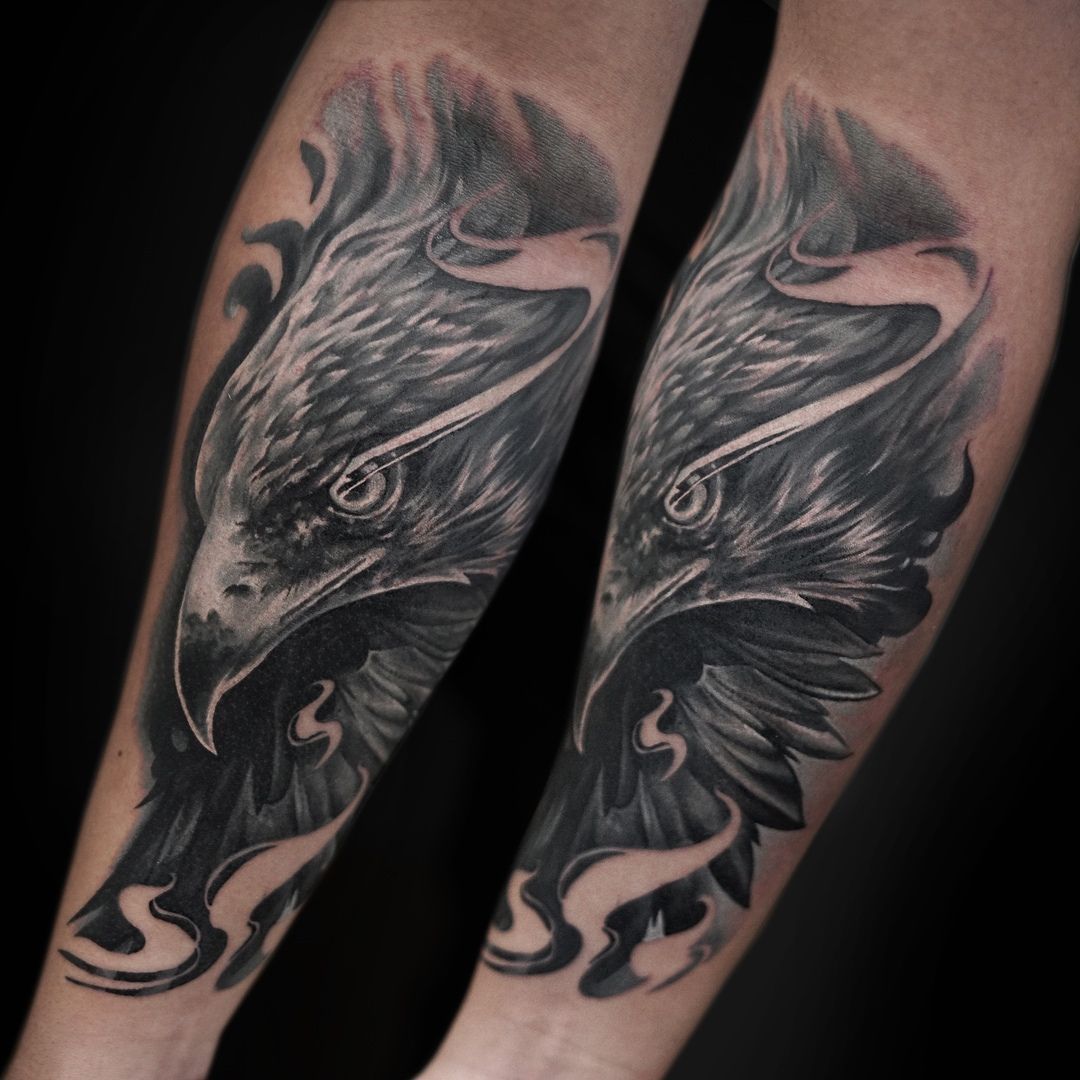
- I'm sorry, but here is the question about finances. How different is the earnings of a tattoo artist in the United States from ours, domestic? And what is the level of costs associated with it?
- I think it's not a secret for anyone that in Europe and America manual labor is valued much higher and is paid accordingly. Yes, of course, the standard of living is much higher here, but in any case, with that level of income, you can afford more here, starting with even the most necessary things for work (high-quality equipment, needles and pigments), and ending with household items. The ratio is higher.
- Is it difficult at all to rebuild from the Russian way of thinking to the American one?
- I would not say that there is a tangible difference, but nevertheless the mentality, of course, is different, and you gradually yourself drive into this flow, rebuild, look at many things easier, which, in turn, helps you to concentrate on more important things, your creativity, approach and attitude to work, tattoo in general.
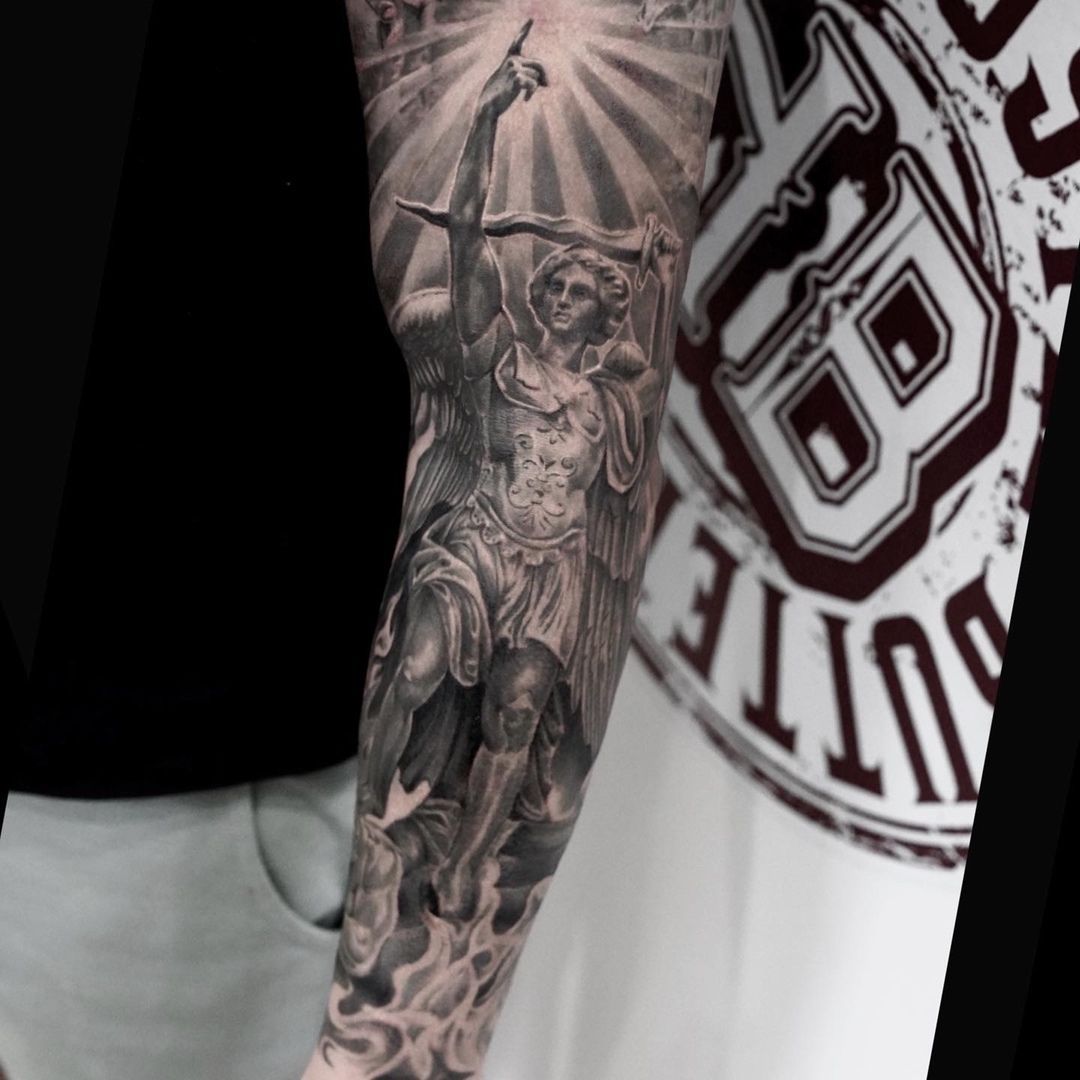
- To what extent are Russian artists in demand in the US?
- I have already said that Russian tattoo artists are in great demand all over the world, the USA is no exception. There are many talented tattoo artists from Russia, Ukraine, Poland, Belarus in New York. I think this is a combination of several aspects. The first is, of course, a strong artistic base, interesting ideas and high-quality performance. This is obvious and understandable. But the second unique feature of our guys, I think, is their discipline and ability to work. We highly value the client's time and money, the work is done quickly and efficiently, the tattooists do not dilute the dirt in the workplace and quarrels in the team. Unlike others, they always come on time, do not chat in vain, are more collected. Again, this is my personal opinion, perhaps you have a different one..
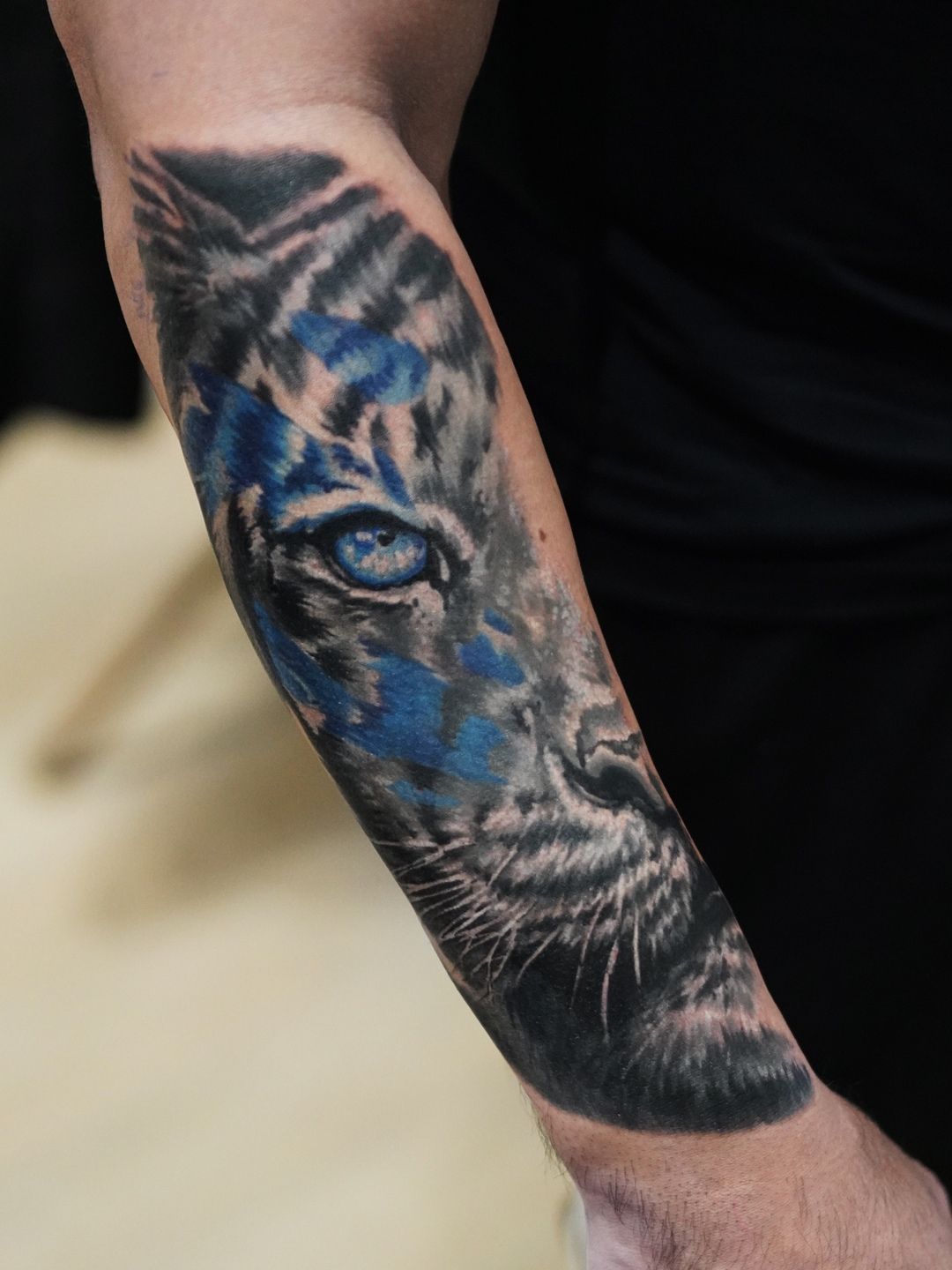
- And how much is the mentality of people in the States different in relation to the Russian one?
- Americans take many things easier. You can often hear "Take it easy" from them. They generally have a positive attitude and a pleasant character. Again, I love their culture of mutual respect, I have not seen anyone being rude in public. Our guys are more closed to strangers, but more sincere in close communication. We are used to assuming the worst-case scenario in order not to get upset once again, while Americans are always confident in the successful outcome of the case. And also, it seems to me that they drink more.
- Once you said that in the USA the tattoo culture is older and more interesting. Have you learned the depth of this Western culture??
- You can talk for a long time about technology and techniques, but when we just arrived and just stopped on the street, somewhere in a residential area, an elderly woman stopped nearby, looked at my feet for a long time and then noticing my gaze, and exclaimed: “Oooh yeah! You have cool tattoos!" Then I noticed it. Perception of people with tattoos and attitudes towards them. Here, tattoo culture and formation took place differently. There were no associations with the criminal world, taboo, therefore, it was postponed in the minds of people in a completely different way. People are simpler and easier to get a tattoo..
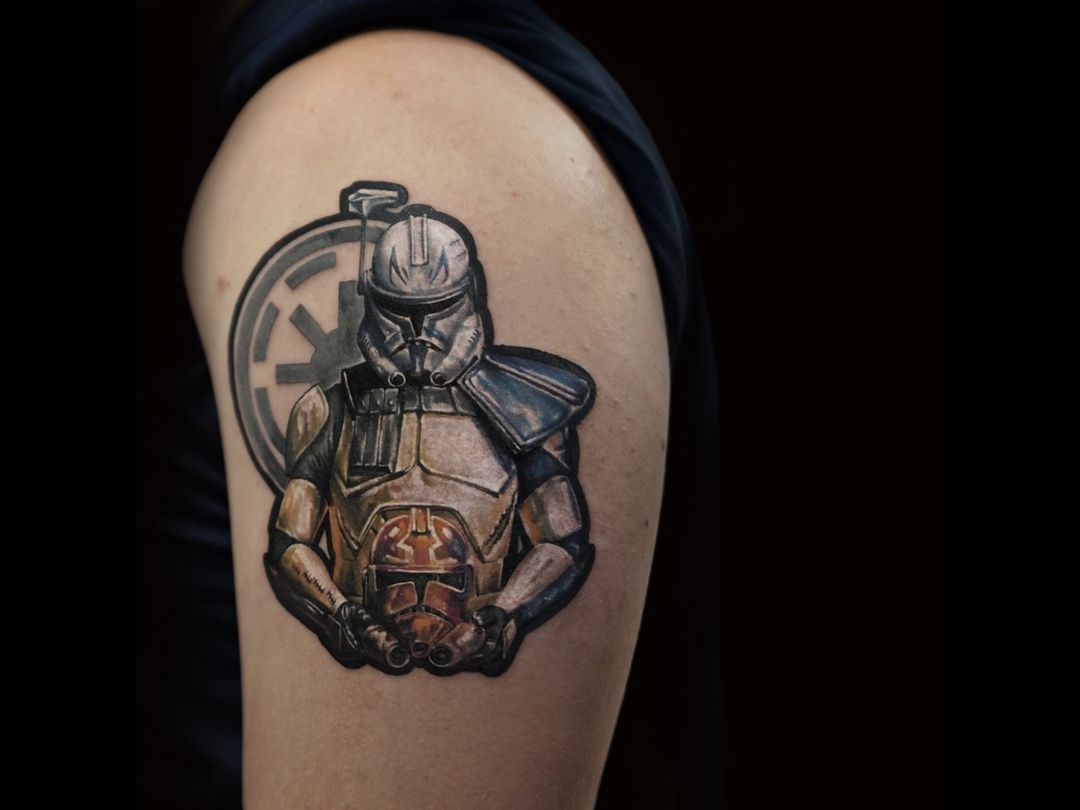
- Have you ever had any funny incidents while working with clients? Can you remember at least a couple??
- It happened, of course, but, most likely, they are all quite positive. In the beginning I was very worried because my English is not at the highest level and I improvised a lot. It has more to do with communication. I tried with gestures and small drawings to show the client a more favorable location, optimal size or another approach to the picture he wants, but it always ended well, many just say: you are an artist, I trust you, if necessary, let's do it this way. This is just a big difference from the Russian audience, people in America trust you and your work more..
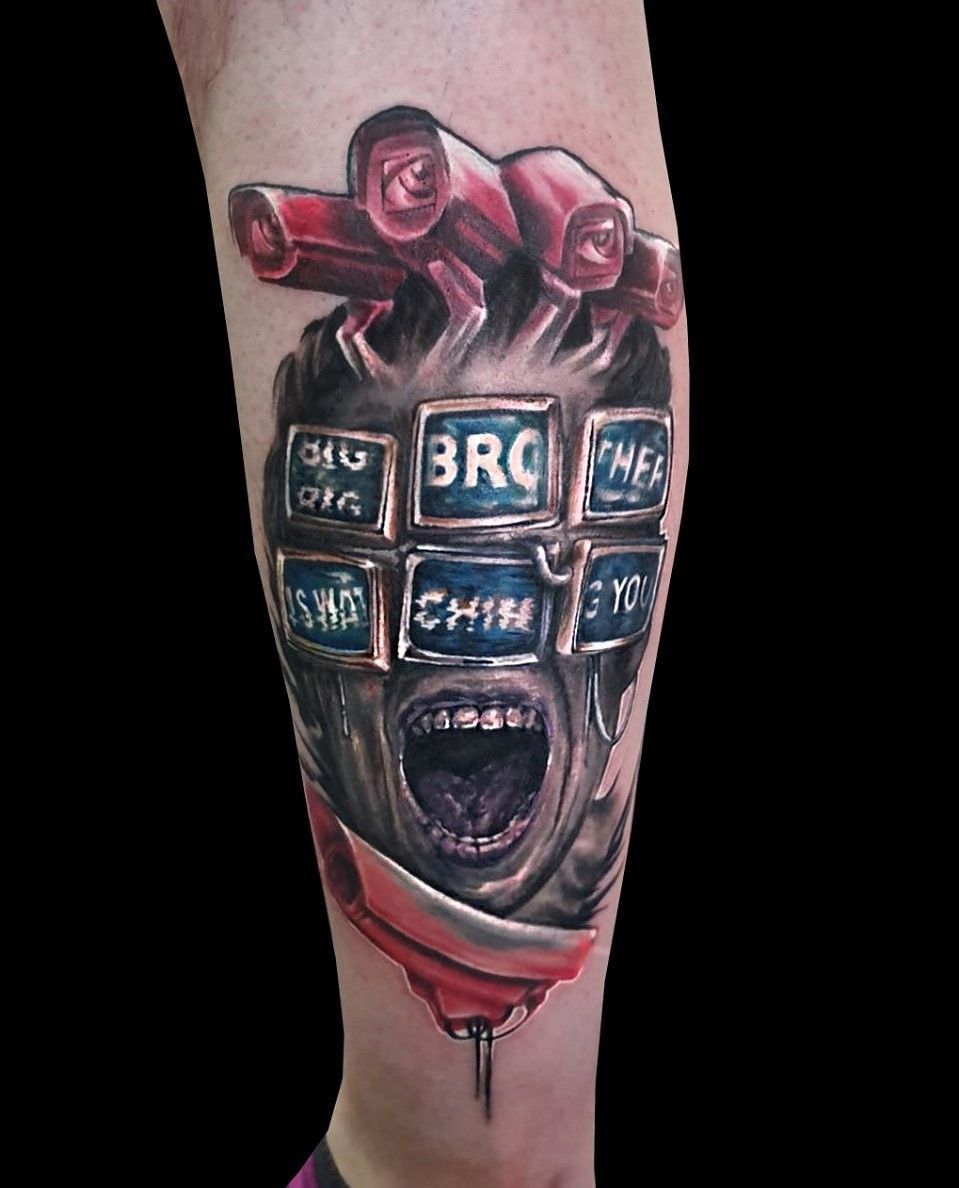
- What are your plans for the near future?
- In the United States, the entire previous year was pretty tough because of the pandemic. Even now, we always and everywhere wear masks, observe social distance, and so on. But it's getting a little freer in 2021 and I'm going to rock the conventions! I have already made a schedule, and literally every 3 weeks from July I am going to travel around America and get acquainted with the tattoo culture and tattoo artists in different states. There are many tattoo conventions ahead! Also, I want to promote my book about tattooing, and my hands are itching to paint a wall in New York - I love street art. And I also plan to travel a little: Hawaii, Alaska.
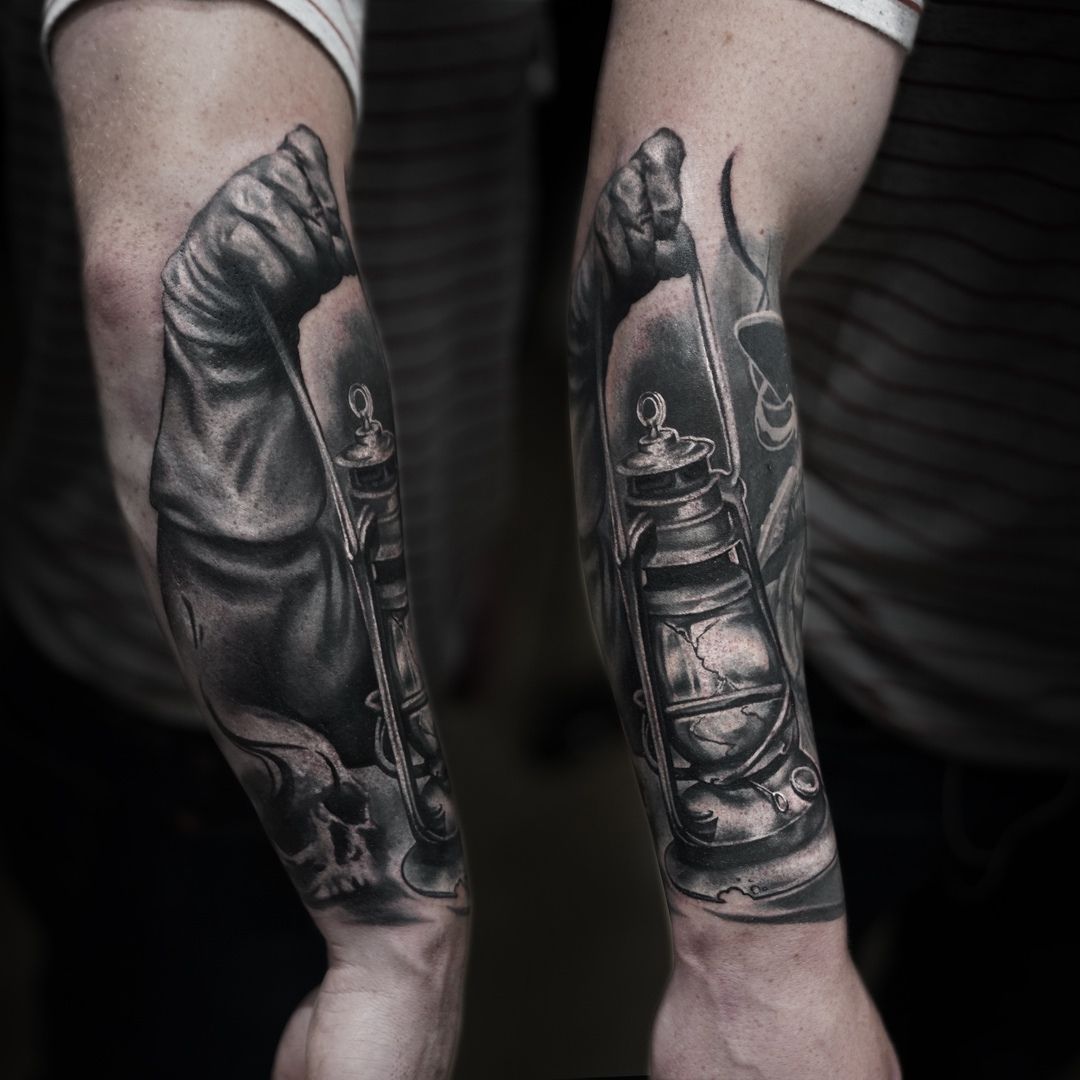
- Well, well, what book? Tell us more.
- By the way, this is already the second edition, and now it is already available on electronic platforms such as Liters, etc. , a kind of guide, "a guide to the world of tattoo". It is called that. I noticed one problem that in our field all the educational material available is for tattooists who have already started, or for those who have been working for a long time and want to pump their skill. But there is little literature for people who are just looking to get started or just learn a little more information about tattooing. It is a kind of basic information for entering the profession with historical, theoretical and practical parts. We are more focused on distributing it here in English.
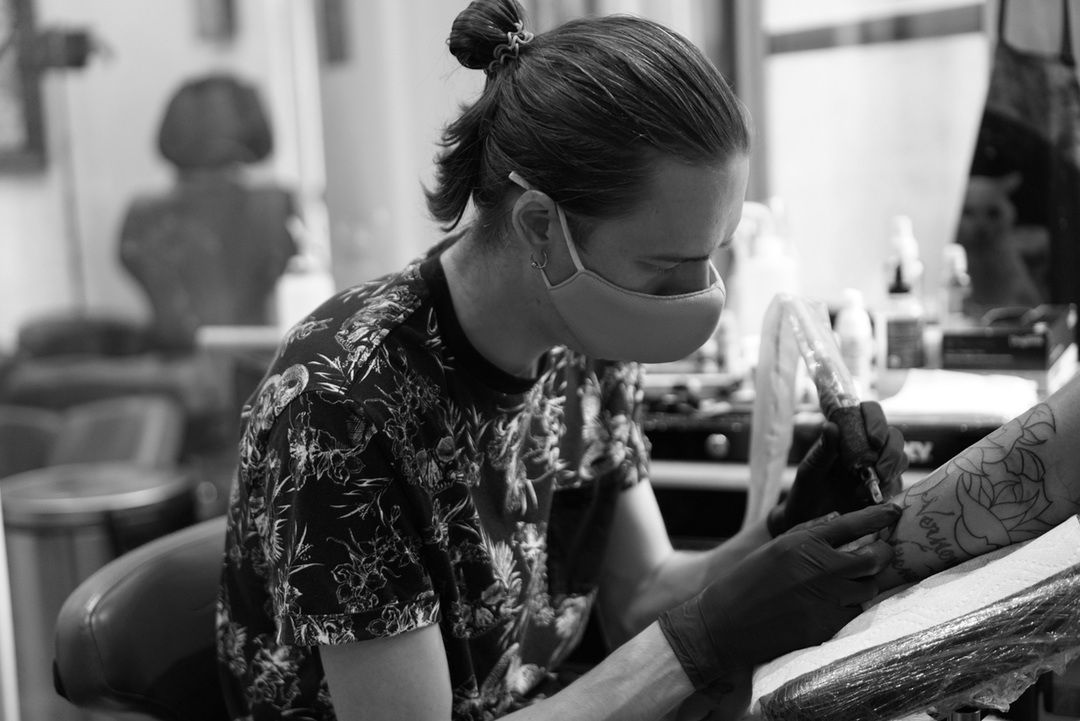
- What about Graffiti? Did you do it or is it a new hobby for you, inspired by the freedom of the United States??
- For a very long time I did a little artwork. Yes, of course, when you walk around New York and see hundreds of graffiti works around you, from simple tags (artist's signature) that mark all accessible surfaces, to masterfully decorated skyscraper facades entirely, it takes my breath away and my hands itch. There are several legal art spaces in New York where, having prepared a project, you can legally place your art. And I'm not talking about exhibitions and museums dedicated to graffiti, and the famous art of the same Banksy and Obey, which you can find just on the street in the city center.
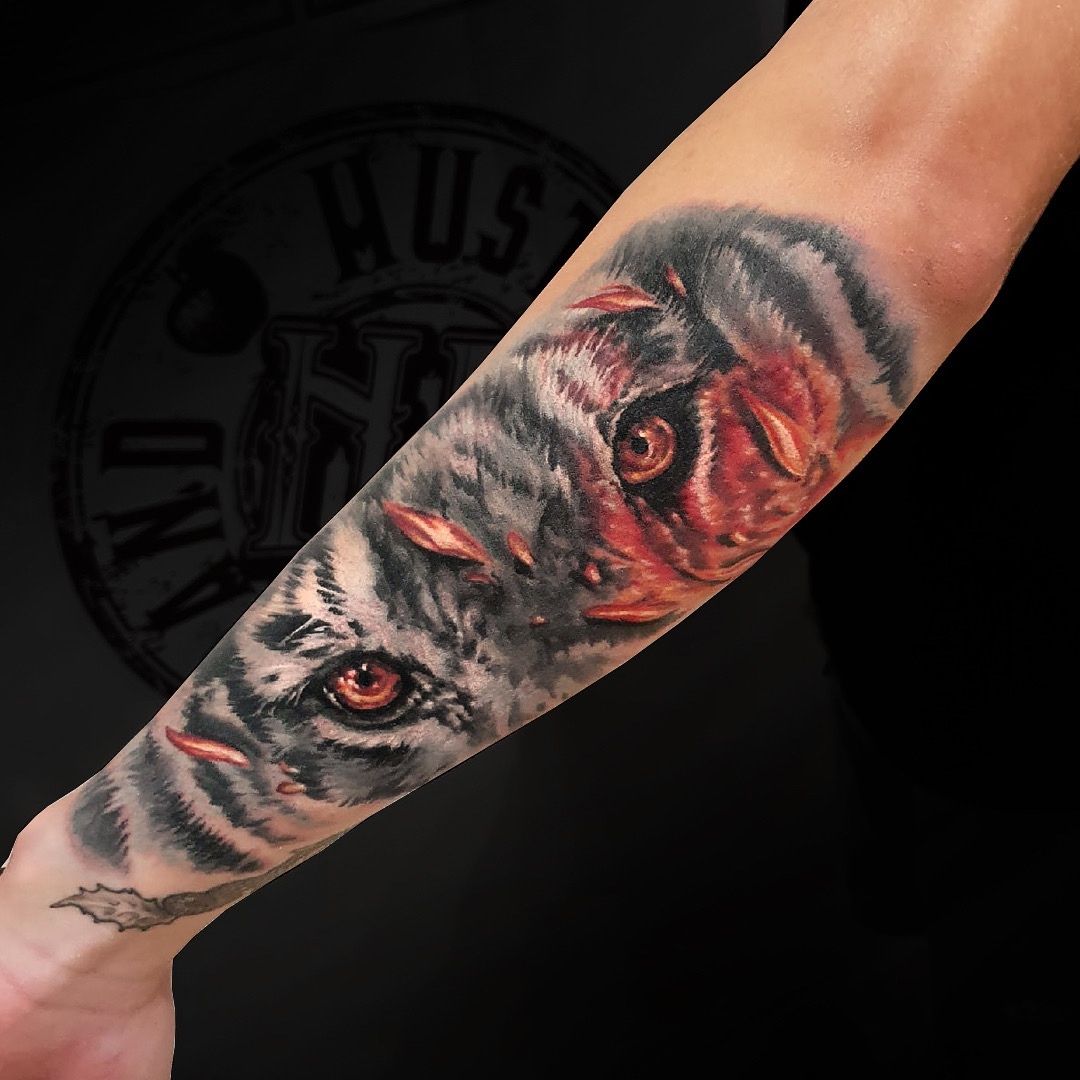
- The question to a popularizer. Is it possible in today's world for a talented beginner to conquer the whole world without using marketing, targeting and everything else?
- It is possible, but not necessary. Of course, the work of a tattoo artist speaks for itself, and people will go to the master of their craft by recomends of their friends. But with the help of modern technology, with the right approach, you can achieve success many times faster. Moreover, you always need to keep up with the times, a modern tattoo artist is no longer just a craftsman.
- We, how it seems to me, still retain the cult of Instagram, in which the number of subscribers is valued first of all, and in the second place people pay attention to the quality of work. What about the States??
- Here people actively use Facebook, distribute business cards and write SMS, and this is not an outdated form of communication. Just like word of mouth, no one has canceled it anywhere. It seems to me that the cult of Instagram is everywhere, but here they look more at what you do, and not how many likes and subscribers you have on Instagram, or where and in which studio you work. I have a small audience, but now I have a fairly loaded booking for 1.5-2 months ahead. It seems to me that you cannot focus on just one platform to attract new customers, you need to use all available resources.
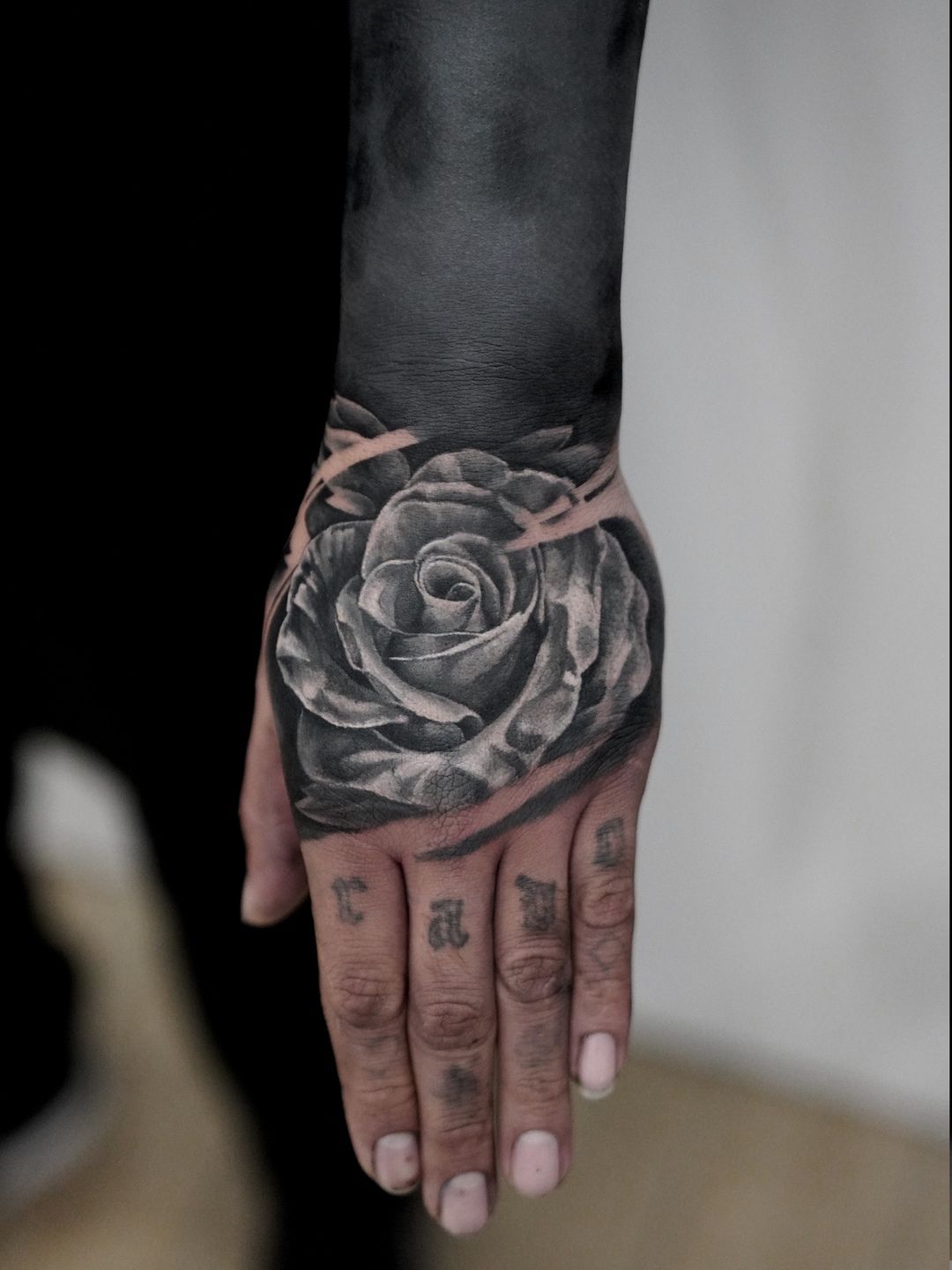
- Do you yourself have any idols among tattoo artists? Can you name a few names?
- I have no idols, but there are tattoo artists whose stylistic features I like. For example, O'Kharin, Levgen Knysh, Samokhin from Russian speakers, Walter Montero, Silvano Fiato, Jacub Hendrix from Europeans, and many many interesting guys from all over the world.
- What else does a modern artist do besides tattooing? Do you have any hobbies?
- All my familiar tattoo artists are primarily creators. Many people paint pictures, organize performances and exhibitions. I used to do Kendo (a kind of Japanese martial arts), now I am mastering silk-screen printing on fabric and I want to release my own collection of prints.
- More and more new tattoo artists appear every year. What advice could you give them?
- I wish every novice artist to go into the tattoo industry, first of all, not for money, but for great freedom in creativity and interesting work with interesting people.
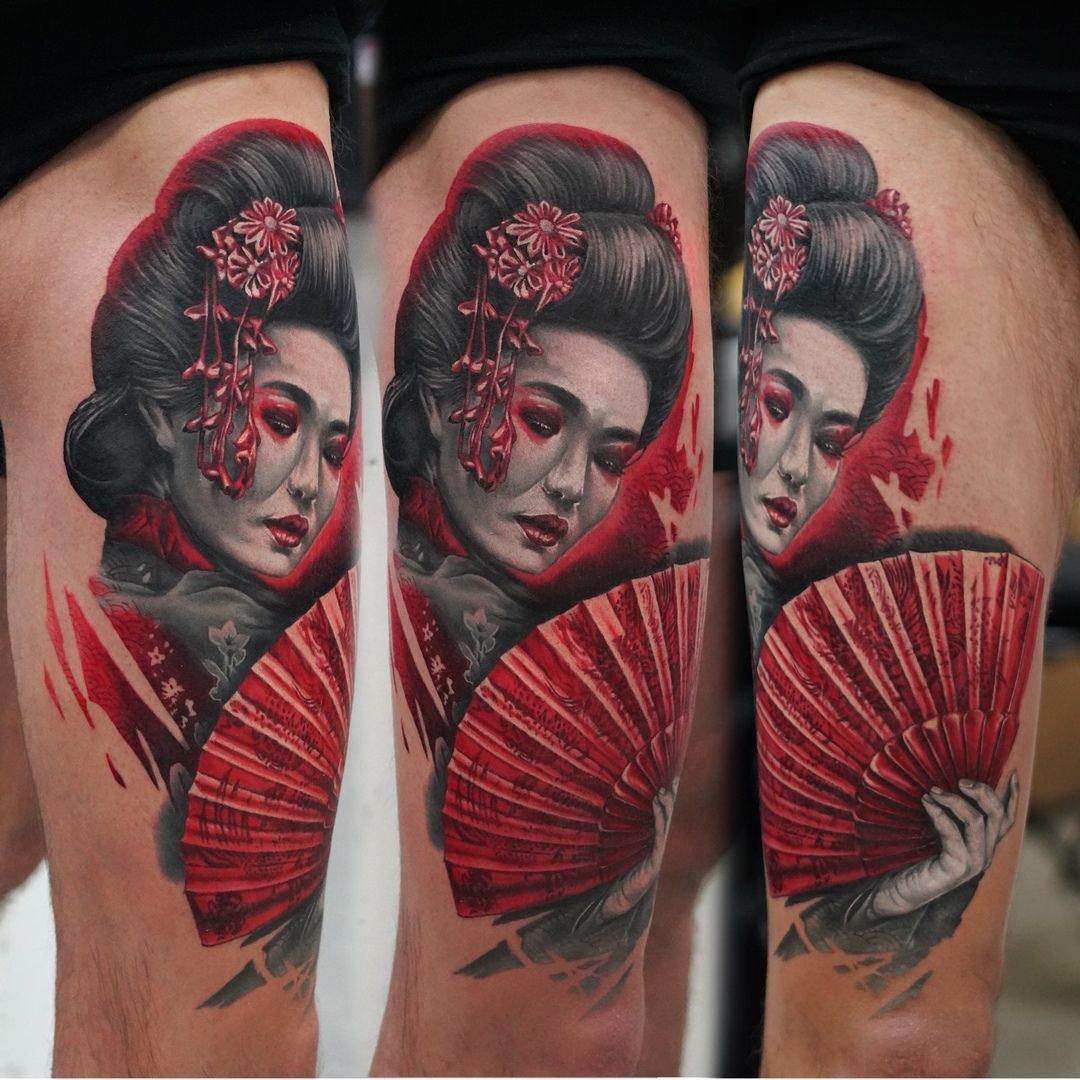
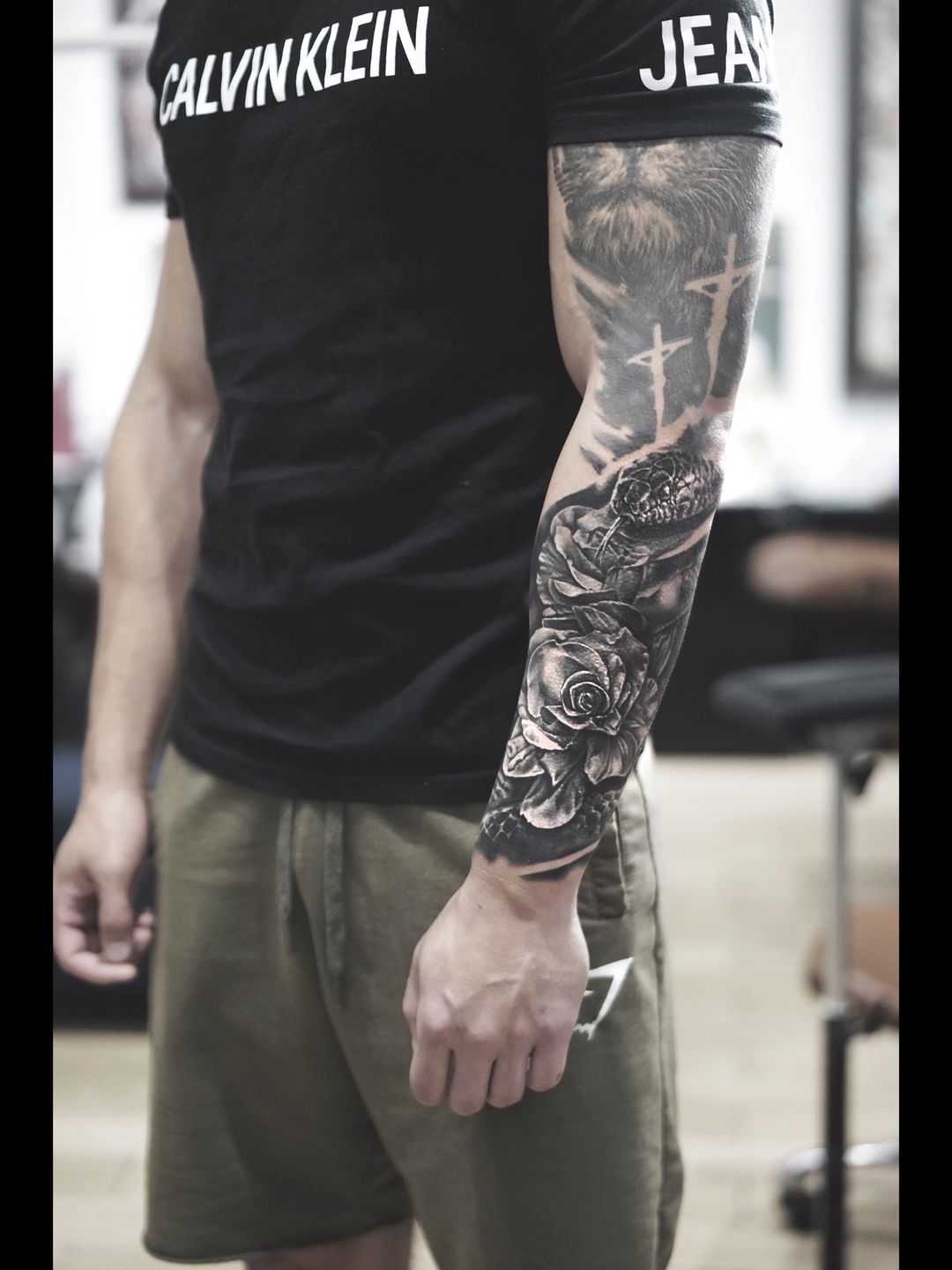
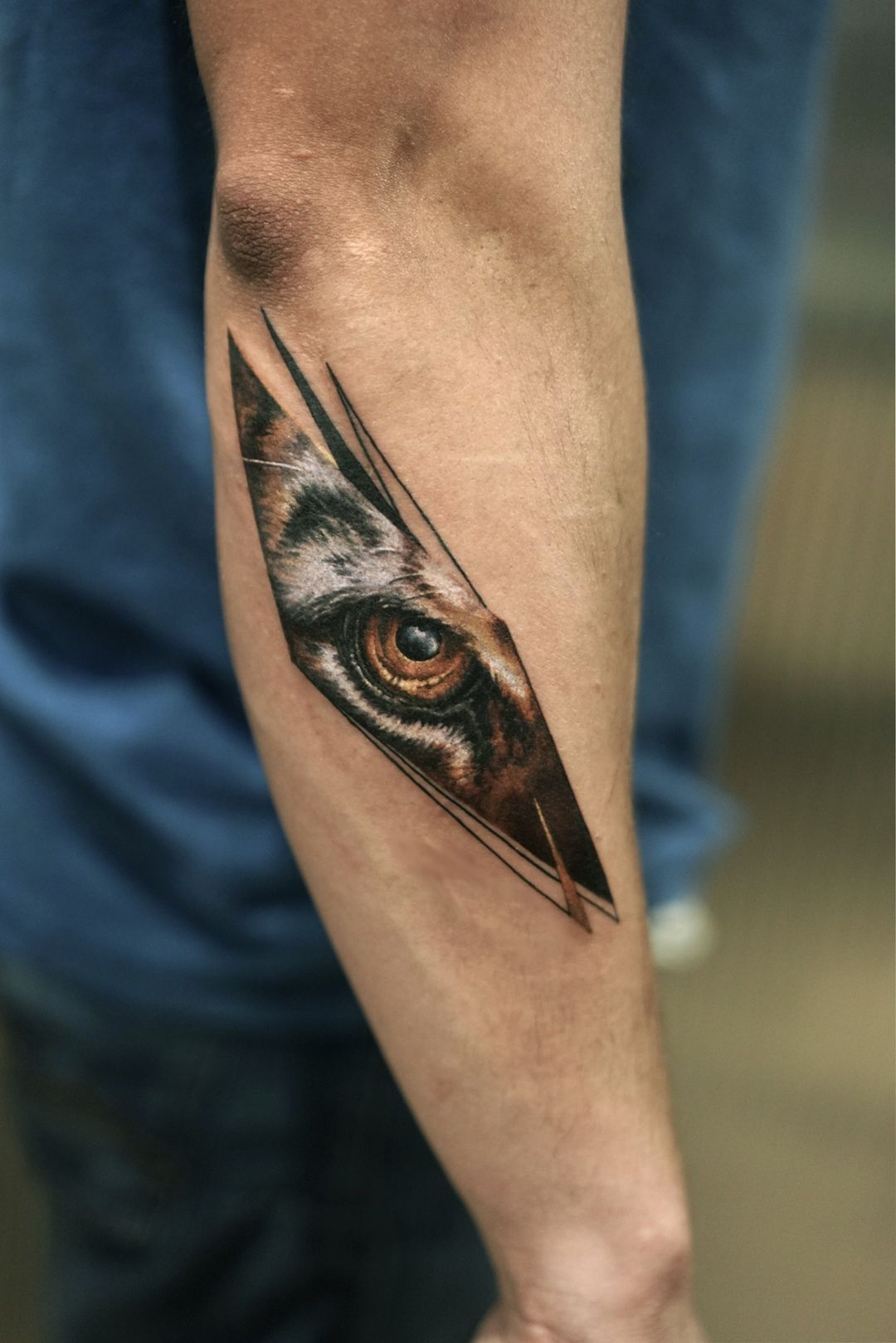
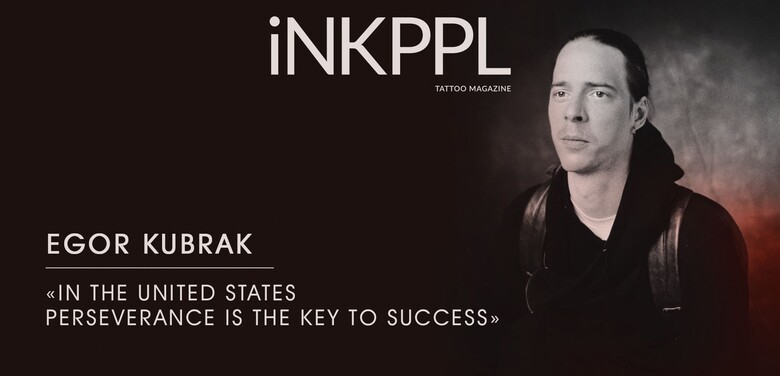

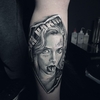
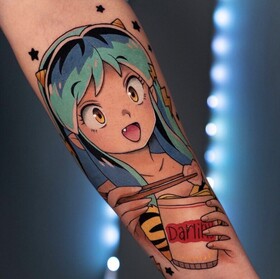


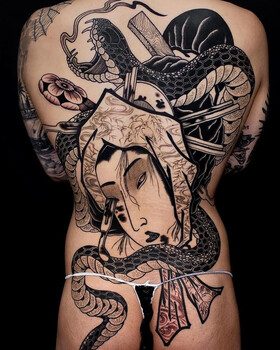
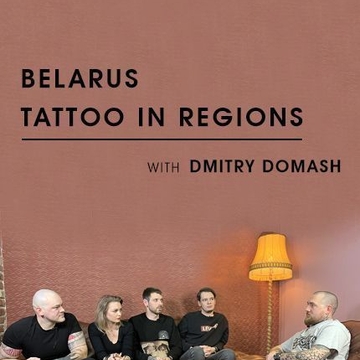
Comments (0)